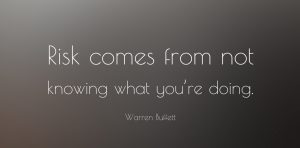《自律養生實踐家之旅311》 身體的風險意識

每天清晨醒來,當我們準備迎接新的一天,體內早已悄然啟動一連串化學反應:壓力荷爾蒙上升、血糖與胰島素同步調節。這正是所謂的「黎明現象」,身體自動為應變做好準備,是一種天生的風險意識。
這種現象日復一日運作,即使我們渾然不覺,它依舊存在,提醒我們:大腦並非萬能,它常常「不懂裝懂」。身體擁有遠比我們意識更敏銳的風險感知系統,而這份智慧,卻是我們長期忽略的寶藏。
發燒與發炎,癌與腫瘤,都屬於身體風險意識的一環,醫療從對抗的角度審視這些現象,無端擴大了疾病的版圖。
斷食,就是一種逆轉操作。它讓身體有機會清除因長期進食而囤積的廢物,也同步清除異常的細胞組織。讓我有機會體悟:進食、情緒與囤積之間存在著一條無形的風險路徑。
三餐的真正風險,不在於食物本身,而在於忽視了身體本有的風險警覺,使我們日復一日將自己推向代謝淤塞的深淵。
所謂「風險」,就是對危險視而不見。今天,這個詞不僅關聯極端氣候與地表擾動,也與我們的日常息息相關。光是走出家門、穿越馬路,或騎車通勤,每一秒都存在潛在風險。
生活態度決定風險意識的高低,而當風險意識不足時,危機便悄然而至。
有人酒駕、有人毒駕,有人疲勞駕駛或邊開車邊爭吵、滑手機。這些行為不斷上演,突顯了社會整體風險意識的薄弱。
風險,往往只需一秒的疏忽,就能摧毀一生的幸福。不論是你撞到別人,或是別人撞到你,法院裡的調解室早已堆滿這類的現實劇本。
風險的議題延伸甚廣,單單睡眠便足以自成一章。現代人對睡眠的重要性毫無敬意,所引發的健康災難早已罄竹難書。
若要審慎評估道路風險,我敢斷言,超過八成的駕駛人正承載「睡眠債」所帶來的隱憂。
事實上,幾乎所有的風險最終都回到大腦那過於自信的主觀意識。硬要在暴風雨來臨前去溪邊玩水、半夜騎車賞螢的衝動,就是明證。多少告別式起於人們忽視風險,自食惡果。有時,出事的是恍神的前車,喪命的卻是沒有保持距離的後車。
每當我思索這些場景,總會回到一個起點:人體的進化設計。良好的睡眠本應是每日的必修課,最基本的風險管理,早已交由神經系統與內分泌系統默默執行。身體致力於保護我們,而大腦卻常常扮演製造風險的角色。
真正的養生關鍵,正是在於大腦與身體之間的平衡。若大腦強行掌控一切,不僅疾病橫生,災難亦接踵而至。
所有人類的糾紛,無非源於一念之差,源於權力與責任的不對等。
我們總是把健康交給藥物,卻忽略飲食與睡眠才是風險的根源。
最真實的風險,往往以一陣突如其來的胸痛降臨,身體倒下,是因為主人長期無視心血管的保養之道。
當身體的能量被頻繁進食攫取,血管開始沉積異常,整體動能漸失。許多人對消化的耗損毫無自覺,於是疼痛靠藥物、飢餓靠進食,風險也就悄然堆疊。
那些只談營養補給的健康教育,往往掩蓋了更根本的問題:生命力的缺失。所謂「生命力」包括來自食物的酵素以及與人體共存的菌種,這些內容目前在醫學和營養學領域較少被關注。
回到黎明現象的本質,身體具備未雨綢繆的本能,當身體無法再防範風險,往往代表大腦早已壓制了身體的智慧。
現代人經常不停進食,最終導致健康惡化,甚至失能臥床,來自大腦的風險意識淪喪。
風險從未遠離,我們每天都與風險共舞,該做的是未雨綢繆,做好該做的準備。
學會與身體對話,才是養生的真正起點,該讓身體休息就讓身體休息,該斷食就斷食。
至於身體的囤積需要多久清理?答案永遠不一,因為每個人的風險條件都不同。但可以肯定的是:斷食,正是讓身體重新喚醒風險意識、回歸平衡的最有效手段。
它能修復菌腦腸軸的連結,重建免疫系統,提升療癒能力,是身體對抗病痛的主動回應。
總結一句話:風險意識,是身體的本能;而我們的大腦,則需要重新學會謙卑理解風險的存在。
活在風險中不可怕,可怕的是自以為無風險。在充滿風險的日常裡,笑看自認「無風險」的人生。
(風險來自於不知道你在做什麼)
The Body’s Innate Risk Awareness
Each morning, as we awaken to a new day, our body quietly initiates a series of chemical reactions: a surge in stress hormones, synchronized adjustments in blood sugar and insulin levels. This is what is known as the “dawn phenomenon”—a built-in response system preparing us for the demands of the day. It is the body’s natural form of risk awareness.
This phenomenon occurs daily, whether we notice it or not. It reminds us of a fundamental truth: the brain is not all-knowing. In fact, it often pretends to know what it doesn’t. The body, on the other hand, possesses a far more intuitive and refined perception of danger—an intelligence we’ve long overlooked.
Fever, inflammation, cancer, and tumors are all expressions of this risk awareness. Yet modern medicine, viewing these phenomena through a lens of opposition, often enlarges the scope of disease rather than understanding its purpose.
Fasting is a kind of reverse operation. It grants the body a chance to cleanse the accumulated waste from prolonged eating—and even to clear abnormal cellular structures. Through fasting, I’ve come to realize there is an invisible path linking eating, emotional states, and physiological buildup. The true risk of eating three meals a day isn’t in the food itself, but in ignoring the body’s risk alert system, leading us—bit by bit—into metabolic congestion.
Risk, by definition, is the willful disregard of danger. Today, the word connects not only to extreme climates and environmental disruption, but also to the mundane. Simply stepping out the door, crossing a street, or commuting by scooter involves constant exposure to potential danger.
Our attitude toward life determines our sensitivity to risk. Where awareness is lacking, crisis creeps in. Some people drive under the influence of alcohol or drugs. Others drive while exhausted, arguing, or glued to their phones. These behaviors reflect a collective lack of societal risk awareness.
Often, it takes only one careless second to destroy a lifetime of happiness. Whether you hit someone or someone hits you, the reality of such accidents is written into court mediation rooms, over and over again.
The topic of risk extends into many areas—sleep, for instance, could form a discussion all on its own. Our neglect of sleep has led to an unending list of health disasters. If we were to evaluate road safety with precision, I would assert that over 80% of drivers carry the invisible burden of “sleep debt.”
In truth, nearly all risks ultimately trace back to an overconfident and overly subjective mind. The impulse to go swimming before a storm or to chase fireflies in the middle of the night exemplifies this. So many funerals begin with someone ignoring danger and paying the price. Sometimes it’s the inattentive driver in front who causes the accident, but the fatal outcome falls upon the car behind that failed to keep a safe distance.
These reflections always bring me back to the body’s evolutionary design. Adequate sleep is meant to be a daily discipline. The most basic form of risk management has long been entrusted to our nervous and endocrine systems. While the body labors to protect us, the brain too often becomes the reckless force creating danger.
The key to true health lies in the balance between body and brain. When the brain insists on dominating everything, disease follows—and so does disaster. All human conflicts stem from a single misstep: the imbalance between power and responsibility.
We entrust our health to medication, while ignoring that food and sleep are the true origins of risk.
The most tangible form of risk often appears as sudden, crushing chest pain—the body collapsing because its owner has long ignored cardiovascular health. When energy is drained by frequent eating, abnormal deposits form in the vessels, and the body’s overall vitality weakens. Most people are unaware of how draining digestion can be. Pain is managed with pills, and hunger is resolved with more food—thus risk accumulates quietly, day by day.
Health education that focuses solely on nutrition often conceals a deeper issue: the loss of vitality. True vitality includes the enzymes from real food and the beneficial bacteria that coexist within us—topics largely absent from modern medicine and nutritional science.
Returning to the essence of the dawn phenomenon: the body possesses the instinct to prepare for what lies ahead. When the body can no longer defend itself, it is often because the brain has long overridden its wisdom. Modern humans eat incessantly, gradually eroding their health and, eventually, ending up bedridden—not from external fate, but from a collapsed inner system of risk perception.
Risk has never been far from us. Every day, we dance with danger. What we must do is prepare—early and wisely.
Learning to listen to the body is the true beginning of well-being. Let the body rest when it needs rest. Fast when the body calls for fasting. As for how long it takes to eliminate what has been accumulated in the body—there is no fixed answer. Everyone’s risk profile is different.
But one thing is certain: fasting is the most effective way to reawaken the body’s risk awareness and restore internal balance. It repairs the gut-brain axis, rebuilds the immune system, and revives healing capacity—it is the body’s active response to prevent illness.
In summary: risk awareness is the body’s innate wisdom. The brain must relearn to approach risk with humility. Living with risk isn’t what’s frightening—it’s the illusion of being risk-free that truly endangers us.
And in a world full of risk, the wisest ones are those who see through the false calm of a “risk-free” life—with clear eyes, and a ready heart.


